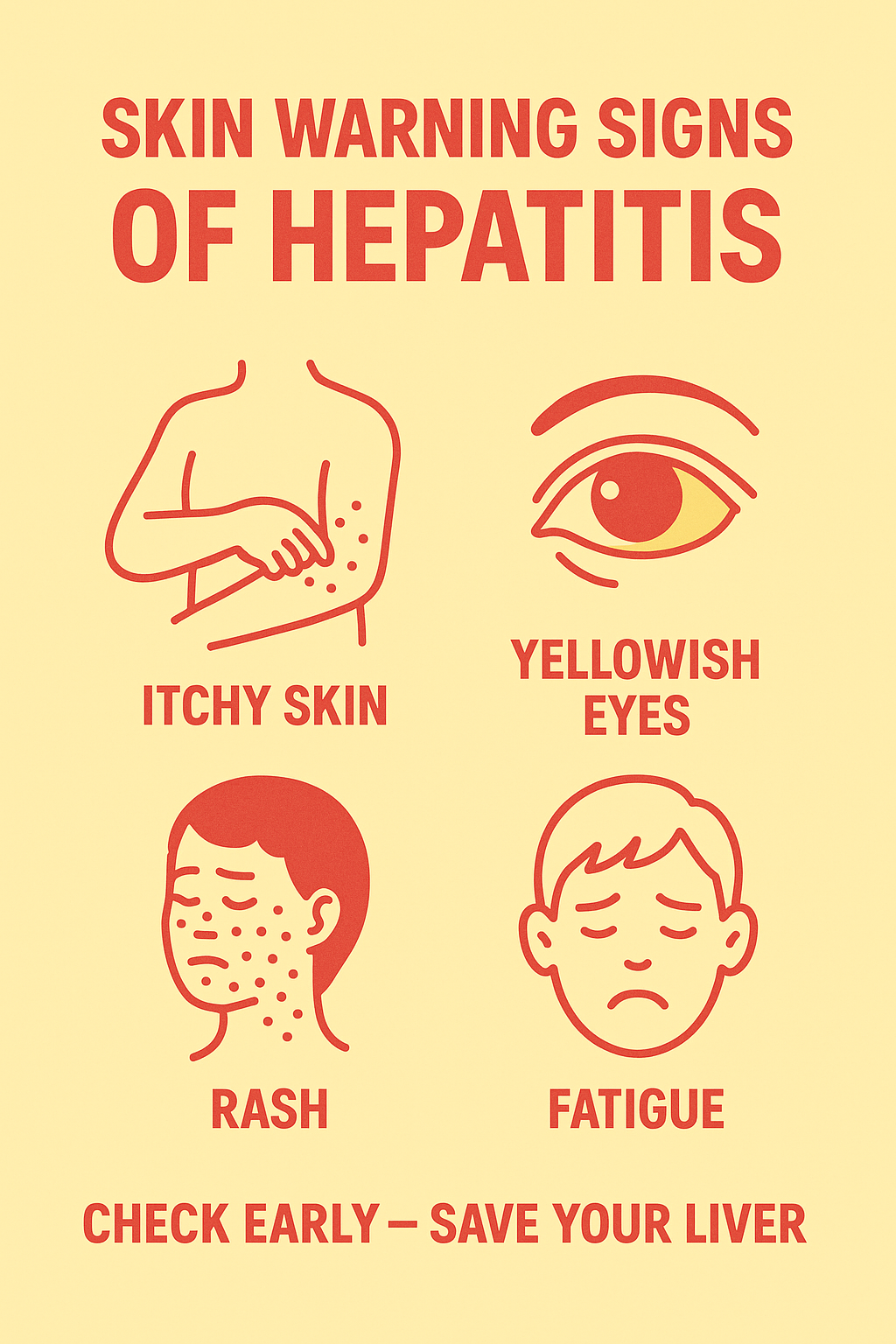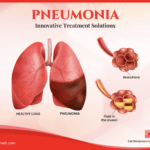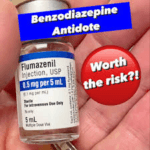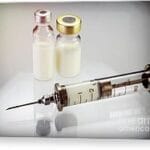Hepatitis refers to inflammation of the liver, which can be caused by various factors, including viral infections,alcohol consumption, poisons, and autoimmune conditions.
Hepatitis is a medical term that refers to inflammation of the liver. This condition can be caused by colorful factors, including viral infections,autoimmune conditions, alcohol consumption, and certain specifics. The most famous cause of hepatitis is viral infection. There are several types of viral hepatitis, classified as hepatitis A, B, C, D, and E.
Types of Hepatitis and their Route Of Transmission
Hepatitis can be caused by various factors, primarily viral infections, although non-viral causes also exist. The main viral types are following:
Hepatitis A: Hepatitis A is a largely contagious viral infection that primarily spreads through the fecal-oral route, causing acute liver inflammation. It’s generally associated with contaminated food or water and manifests with symptoms similar as hostility and fatigue.
Hepatitis B: It is a bloodborne virus, can lead to both acute and chronic liver complaint, frequently transmitted through contact with infected blood, sexual contact,or from mama to child during childbirth. Chronic hepatitis B infection may affect severe complications, including cirrhosis and liver cancer.

Hepatitis C: It is another bloodborne virus, and is a major cause of chronic liver complaint worldwide. It’s frequently asymptomatic in its early stages,leading to a delayed diagnosis and implicit liver damage.
Hepatitis D: It is a unique virus that requires the presence of hepatitis B for its replication, leading to more severe issues than hepatitis B alone.
Hepatitis E: This virus, primarily transmitted through contaminated water, is generally a tone- limiting infection, but in pregnant women, it can lead to severe complications and increased mortality.
Each type of hepatitis poses distinct challenges in terms of prevention,opinion, and treatment,emphasizing the significance of public health efforts to control their spread and impact.
Non-Viral factors
In addition to viral hepatitis( similar as hepatitis A, B, C, D, and E), several non-viral factors can contribute to hepatitis. These include:
Alcohol: Excessive and prolonged alcohol consumption can lead to alcoholic hepatitis, causing inflammation and damage to the liver.
Poisons and Chemicals: Exposure to certain poisons and chemicals, including artificial detergents,fungicides, and some tradition specifics, can cause hepatitis.
Autoimmune Diseases: Conditions where the vulnerable system mistakenly attacks the liver cells can lead to autoimmune hepatitis, a chronic inflammatory liver complaint.
Metabolic diseases: Some metabolic diseases, similar as Wilson’s complaint and hemochromatosis, can affect in the accumulation of substances in the liver,leading to inflammation and hepatitis.
Non-Alcoholic Fatty Liver Disease( NAFLD): Linked to obesity and metabolic pattern, NAFLD involves the accumulation of fat in the liver, potentially progressing to inflammation and liver damage.
Genetic Factors: Certain inheritable factors can dispose individualities to liver conditions, including hepatitis.
Drugs and Medications: Some specifics, especially when taken in high doses or over an extended period, may cause medicine-convinced hepatitis.
Ischemic Hepatitis: Reduced blood force to the liver, frequently due to conditions like heart failure or shock, can lead to ischemic hepatitis.
Hidden Ways Hepatitis Spreads at Home
Most people think hepatitis only spreads through obvious ways (blood transfusion, needles, sex). But many hidden or under-recognized household transmission routes exist. This section uncovers them, especially relevant to families, shared living spaces, and daily domestic habits. It also ties into your site’s focus on diseases and emergency medicine.
How hepatitis spreads — overview
- For Hepatitis B: via infected body fluids — blood, saliva, vaginal/seminal fluids; from mother to child at birth is common especially in high-prevalence regions. World Health Organization+1
- For Hepatitis A: via ingestion of virus (faecal-oral), contaminated food, water, surfaces. Mayo Clinic+1
- For Hepatitis C: mainly blood-to-blood contact (needles, shared equipment). Healthline
Hidden household spread routes

Here are lesser-known ways hepatitis viruses might spread in a home setting:
| Hidden route | Why it matters | Protection strategy |
|---|---|---|
| Shared toothbrushes, razors, nail-clippers | These tools may have microscopic blood traces and transmit HBV/HCV. Healthline+1 | Use separate personal items; sterilize when needed. |
| Handling of blood or body fluids (menstrual, wound care) without gloves | If a family member has hepatitis B/C and you assist wound care, you can be exposed. Nationwide Children’s Hospital | Wear disposable gloves; wash hands thoroughly. |
| Shared toileting surfaces and inadequate hand-washing | For hepatitis A/E, virus can survive in stool and be passed via contamination. Mayo Clinic | Always wash hands after toilet; clean shared surfaces; use separate towels if someone is infected. |
| Tattooing, piercing at home or via un-sterile equipment | Sharp objects at home increase risk of blood exposure and HBV/HCV transmission. World Health Organization | Use certified professionals; at home avoid improvised piercing/tattoo tools. |
| Caring for a newborn from an infected mother | Vertical transmission or early childhood horizontal spread occurs for HBV. World Health Organization+1 | Test mother for HBV/HCV; vaccinate baby for HBV; follow mother’s hygiene. |
| Using contaminated kitchen utensils or eating spoiled food (for HAV) | HAV can live on surfaces and be transmitted via contaminated food/utensils. Mayo Clinic+1 | Maintain kitchen hygiene; wash fruits/vegetables; avoid raw shellfish in risky areas. |
| Infected saliva or shared items among children (though rare for HBV) | Some body fluid contact with cuts/mucous membranes may risk HBV. World Health Organization+1 | Discourage sharing of lip-balms, toothbrushes, encourage good hygiene. |
Household prevention checklist
For food safety: wash raw fruits/vegetables, avoid eating raw shellfish in risk areas, ensure clean water (especially relevant to HAV/E). Mayo Clinic
Vaccinate all eligible persons (especially for hepatitis A & B).
Practice universal precautions at home when handling any person’s blood or body fluid: gloves, antiseptic, separate disposal.
Clean high-touch surfaces (toilet handles, kitchen surfaces, shared towels) regularly, especially if someone in the house is infected.
Use personal grooming items individually: razors, toothbrushes, nail-clippers.
If someone in the household is diagnosed with hepatitis: designate their personal items, laundry separately if needed, ensure disposal or safe cleaning of wound dressings.
Symptoms of Hepatitis
The symptoms of hepatitis can vary depending on the type of virus causing the infection and whether it’s an acute or chronic case.
common symptoms of hepatitis include:
1 Fatigue
2 Hostility( yellowing of the skin and eyes)
3 Abdominal pain or discomfort
4 Nausea
5 Vomiting
6 Loss of appetite
7 Dark urine
8 pale, multi colored droppings
9 Flu-like symptoms similar to fever and muscle aches.
If You Notice This on Your Skin, Get Tested for Hepatitis Immediately!”
Skin and visible signs you should never ignore
Hepatitis” literally means inflammation of the liver. It can be caused by viruses (like Hepatitis A, Hepatitis B, Hepatitis C), toxins (including alcohol or some drugs), autoimmune causes, and other factors. Cleveland Clinic+2Healthline+2
The reason skin warnings matter: when the liver is failing to clear bilirubin or handle toxic buildup, changes show up externally. MSD Manuals+1
When you notice any of these skin, eye or urine changes — get tested for hepatitis immediately:
| Sign | What it means | What to do |
|---|---|---|
| Yellowing of skin or whites of eyes (jaundice) | Bilirubin accumulation due to liver dysfunction World Health Organization+1 | See a doctor and request a hepatitis panel (HBsAg, HCV Ab, etc) |
| Dark-coloured urine + pale or clay-coloured stool | Bilirubin being diverted into urine because bile flow is blocked/compromised MSD Manuals+1 | Immediate liver enzyme tests + viral hepatitis serology |
| Itchy skin (pruritus) without other obvious cause | Cholestasis or biliary build-up associated with hepatitis/inflammation Cleveland Clinic+1 | Ask for liver-function tests, viral hepatitis markers |
| Small red hives or urticaria on skin | Especially in acute Hepatitis B, skin reactions may appear due to immune response MSD Manuals | Consider acute viral hepatitis in differential |
| Unexplained skin-rashes or discolorations (e.g., lichen planus in HCV) | Chronic viral hepatitis (especially HCV) can show dermatologic signs | Discuss with hepatologist/dermatologist and ask for HCV testing |
Why these skin signs appear
- The liver is the main organ filtering bilirubin, detoxifying blood, producing bile. When it’s inflamed, obstructed or damaged, bilirubin builds up and deposits in skin and eyes. MSD Manuals+1
- Hepatitis viruses also trigger immune-mediated skin responses (rashes, hives), especially early on. MSD Manuals+1
- In chronic cases, liver scarring reduces bile excretion → causes itching, changes in skin pigment.
When to get tested immediately
- If you see yellow skin/eyes and dark urine + pale stool.
- If you have unexplained itchy skin or hives, especially coupled with fatigue, nausea or upper right abdomen pain.
- If you have risk factors (past blood transfusions, intravenous drug use, tattoos, unprotected sex) and skin signs appear.
- If you’re on medications known to affect liver (or have alcohol use) and skin signs show up.

How to test & what diagnostics are used
- Serology: HBsAg, anti-HBs, anti-HBc (for hepatitis B); anti-HCV Ab + HCV RNA (for hepatitis C); anti-HAV IgM (for hepatitis A) etc. World Health Organization+1
- Liver function tests (LFTs): ALT, AST, ALP, GGT, bilirubin.
- Ultrasound / FibroScan: To assess liver damage.
- Skin involvement referral: If dermatologic sign persists, consult both hepatologist and dermatologist.
- Screening recommendation: Many adults with hepatitis B remain unaware. Health
Preventive and protective tips
- Vaccination for hepatitis A and B (where applicable) is the first line of defence. World Health Organization+1
- Avoid sharing needles, razors, toothbrushes. Close hygiene matters. Healthline
- Monitor medications and liver-toxicity: if you have skin signs and are using hepatotoxic drugs, talk to your doctor.
Wrap-up
If you notice yellowing of skin/eyes, dark urine/pale stool, itchy skin without other cause, or rashes/hives — don’t assume it’s just “skin issue”. These could be red flags signalling liver inflammation, including from hepatitis viruses. Early detection saves lives.
What is fulminant hepatitis?
Fulminant hepatitis, also known as acute liver failure, is a rare but severe and life-long condition characterized by the rapid-fire development of liver failure, frequently within days to weeks. This condition is more generally associated with viral hepatitis, particularly hepatitis B and hepatitis E, but it can also be caused by other factors such as drug-induced liver injury, poisons, and metabolic diseases.
Diagnosis of Hepatitis:
Diagnosing hepatitis generally involves a combination of medical history,physical examination, and laboratory tests. Here are some common ways, in the opinion of hepatitis.
Medical History and Physical Examination
Your doctor will ask about your symptoms, including fatigue, nausea,hostility( yellowing of the skin and eyes), abdominal pain, and any known threat factors for hepatitis. A physical examination may be conducted to check for signs of liver inflammation, such as tenderness or blowups.
Blood Tests
● Liver function tests( LFTs) measure situations of enzymes and proteins in the blood that are associated with liver function. Elevated situations may indicate liver damage or inflammation.
● Viral hepatitis serology tests are used to identify specific viruses( A,B, C, D, or E) causing the infection.
● Tests for specific antibodies and antigens help determine the type and stage of hepatitis.
Imaging Studies
Imaging tests Similar to ultrasound, CT scans, or MRI may be used to assess the size and condition of the liver, describe liver abnormalities, and rule out other implicit causes of liver complaint.
Liver Biopsy
In some cases, a liver biopsy may be recommended to assess the extent of liver damage and inflammation. A small sample of liver tissue is prepared for examination under a microscope.
Other Tests
Additional tests may be conducted to rule out other liver conditions or to assess the overall health of the case.

Treatment of Hepatitis
Each type has specific treatments, but here’s a general overview of the treatment approaches.
1) Supportive Care
● Rest: Acceptable rest is important to help the body recover.
● Nutrition: A healthy and well-balanced diet supports liver function
and overall recovery.
2) Medications
● Antiviral Medications For viral hepatitis( similar as hepatitis B and C), antiviral medicines may be specified. Examples include interferons, ribavirin, and direct-acting antivirals( DAAs) for hepatitis C.
● Immunizations Vaccines are available for hepatitis A and B.Immunization is a pivotal preventative measure, especially in regions where these infections are current.
3) Hospitalization
In severe cases of acute hepatitis, especially hepatitis A or fulminant hepatitis B, hospitalization may be necessary.
4) Avoidance of Hepatotoxic Substances
● Alcohol: It’s important to avoid alcohol consumption, as it can complicate liver damage.
● Certain Medications: Some medications can be hepatotoxic (poisonous to the liver). Cases should inform healthcare providers of all specifics, including over-the-counter medicines and herbal
supplements.
5) Management of Chronic Hepatitis
● For chronic hepatitis B and C, ongoing operation is essential. This may involve regular monitoring of liver function, viral cargo, and imaging studies.
● Newer antiviral medicines, particularly for hepatitis C, have shown high efficacy and smaller side effects.
6) Liver Transplantation
In cases of end-stage liver complaint or liver failure, liver transplantation may be considered.
It’s important to note that the specific treatment plan depends on the type of hepatitis, its inflexibility, and individual patient factors.

Dr. Hamza is a medical content reviewer with over 12 years of experience in healthcare research and patient education. He specializes in evidence-based health information, medications, and chronic disease management. His reviews are based on trusted medical sources and current clinical guidelines to ensure accuracy, transparency, and reliability. All content reviewed by Dr. Hamza is intended for educational purposes only and should not be considered a substitute for professional medical advice










